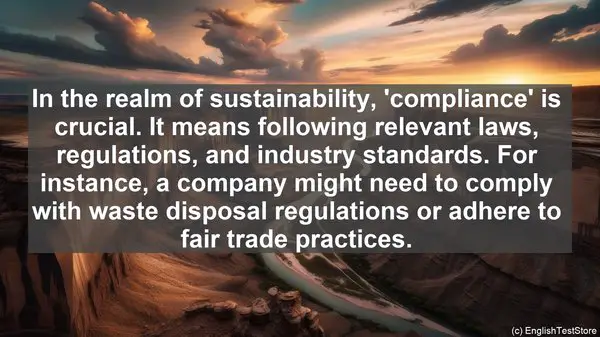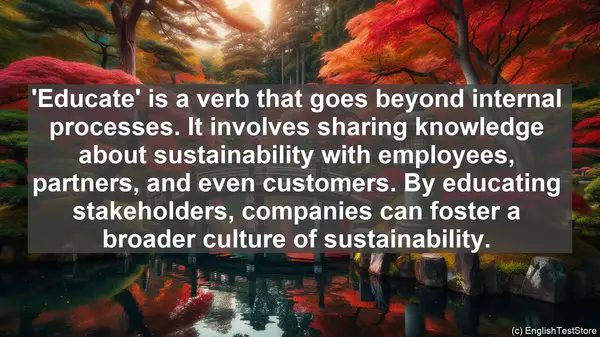Introduction: The Power of Verbs in Conversations
Welcome to today’s lesson on sustainable supply chain management. While vocabulary is crucial, the right verbs can truly bring your conversations to life. They allow you to express actions, intentions, and outcomes. In this lesson, we’ll explore the top 10 English verbs that are indispensable in discussions about sustainable supply chains.
1. Optimize: Maximizing Efficiency and Minimizing Waste
When we talk about sustainable supply chains, ‘optimize’ is a verb that frequently arises. It means finding the most efficient way to utilize resources, reduce waste, and ensure smooth operations. For example, a company might optimize its transportation routes to minimize carbon emissions.
2. Collaborate: Working Together for Shared Goals
In the realm of sustainable supply chains, ‘collaborate’ is key. It signifies the importance of partnerships and teamwork. For instance, organizations may collaborate to develop eco-friendly packaging solutions or jointly invest in renewable energy projects.
3. Monitor: Ensuring Continuous Oversight
To maintain sustainability, it’s crucial to ‘monitor’ various aspects of the supply chain. This involves regularly tracking metrics, such as energy consumption, waste generation, and supplier compliance. By monitoring, companies can identify areas for improvement and take timely action.
4. Innovate: Pioneering New Solutions
Sustainable supply chains require constant ‘innovation.’ This means actively seeking out and implementing novel ideas, technologies, and processes. For example, a company might innovate by adopting blockchain for transparent and traceable supply chain transactions.
5. Mitigate: Addressing Risks and Challenges
‘Mitigate’ is a verb that denotes the act of reducing or minimizing risks. In the context of supply chains, this could involve strategies to mitigate the impact of natural disasters, geopolitical uncertainties, or supplier disruptions.
6. Engage: Building Meaningful Connections
Building relationships and ‘engaging’ stakeholders is vital for sustainable supply chains. This includes regular communication, seeking feedback, and involving stakeholders in decision-making. By engaging stakeholders, companies can ensure their actions align with broader sustainability goals.
7. Assess: Evaluating Performance and Impact
To gauge the effectiveness of sustainability initiatives, it’s essential to ‘assess’ their performance. This involves conducting audits, analyzing data, and seeking feedback. By assessing, companies can identify successes, areas for improvement, and potential bottlenecks.
8. Comply: Adhering to Regulations and Standards
In the realm of sustainability, ‘compliance’ is crucial. It means following relevant laws, regulations, and industry standards. For instance, a company might need to comply with waste disposal regulations or adhere to fair trade practices.

9. Educate: Spreading Awareness and Knowledge
‘Educate’ is a verb that goes beyond internal processes. It involves sharing knowledge about sustainability with employees, partners, and even customers. By educating stakeholders, companies can foster a broader culture of sustainability.
10. Adapt: Embracing Change and Evolving
Lastly, ‘adapt’ is a verb that’s synonymous with sustainability. It means being flexible, open to change, and willing to embrace new practices. In a rapidly evolving world, the ability to adapt is crucial for long-term sustainability.

